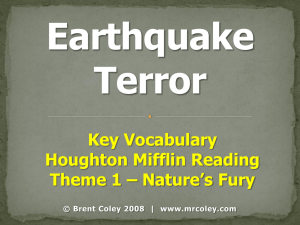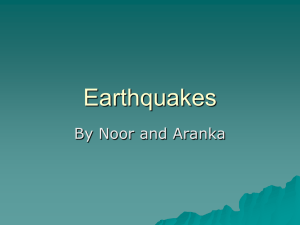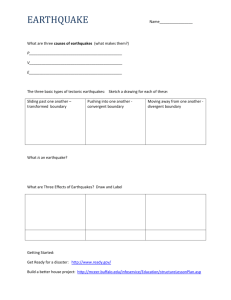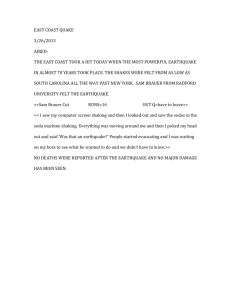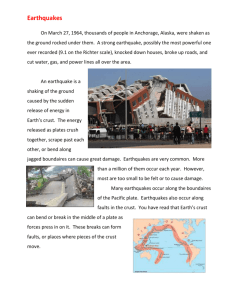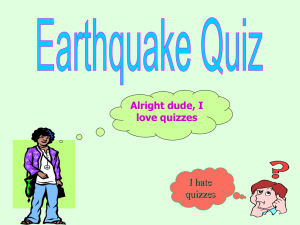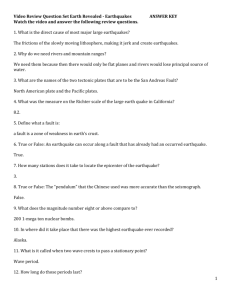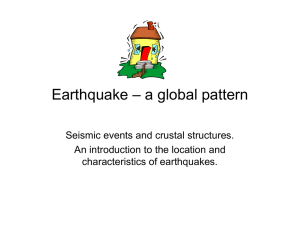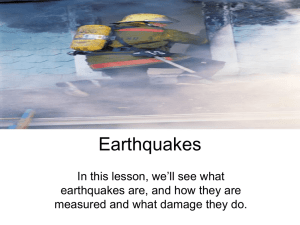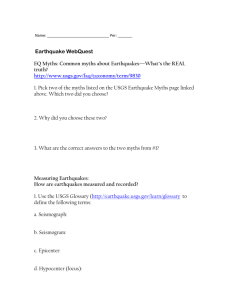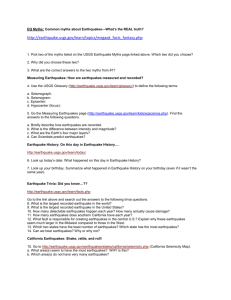Earthquake WebQuest Name: EQ Myths: Common myths about
advertisement
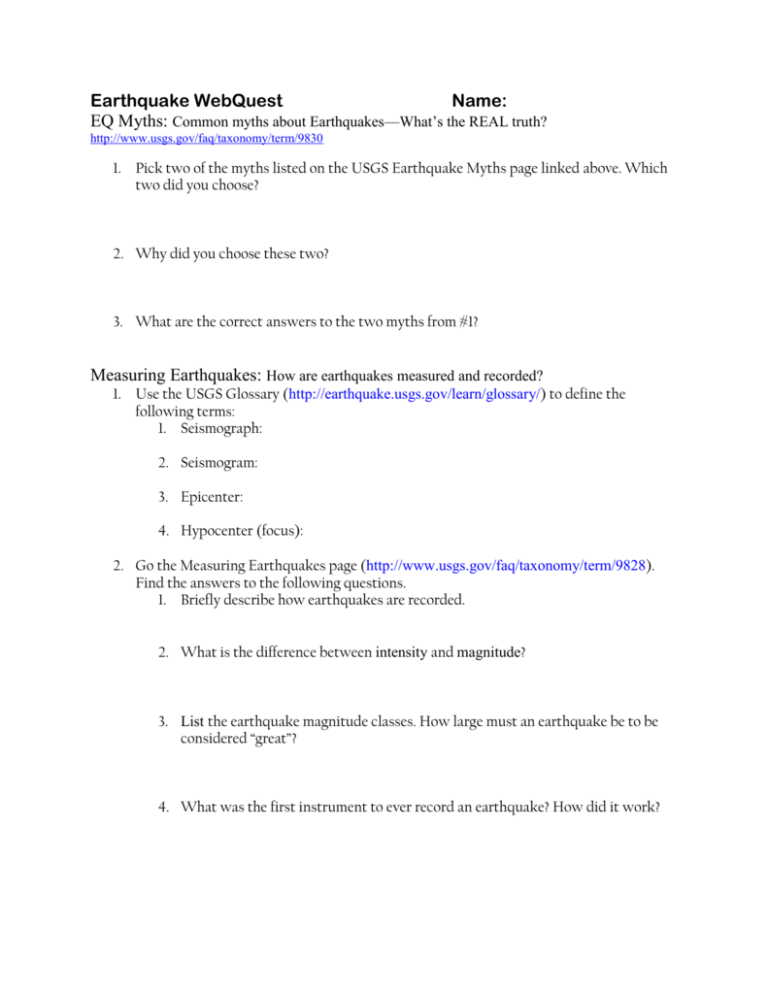
Earthquake WebQuest Name: EQ Myths: Common myths about Earthquakes—What’s the REAL truth? http://www.usgs.gov/faq/taxonomy/term/9830 1. Pick two of the myths listed on the USGS Earthquake Myths page linked above. Which two did you choose? 2. Why did you choose these two? 3. What are the correct answers to the two myths from #1? Measuring Earthquakes: How are earthquakes measured and recorded? 1. Use the USGS Glossary (http://earthquake.usgs.gov/learn/glossary/) to define the following terms: 1. Seismograph: 2. Seismogram: 3. Epicenter: 4. Hypocenter (focus): 2. Go the Measuring Earthquakes page (http://www.usgs.gov/faq/taxonomy/term/9828). Find the answers to the following questions. 1. Briefly describe how earthquakes are recorded. 2. What is the difference between intensity and magnitude? 3. List the earthquake magnitude classes. How large must an earthquake be to be considered “great”? 4. What was the first instrument to ever record an earthquake? How did it work? 5. Look under the “How much energy is released by an earthquake?” link. What is the atomic bomb equivalent of energy released during a 7.0 quake? An 8.0 quake? A 9.0 quake? Earthquake History: On this day in Earthquake History.... http://earthquake.usgs.gov/learn/today/ 1. Look up today’s date. What happened on this day in Earthquake History? 2. Look up your birthday. Summarize what happened in Earthquake History on your birthday (even if it wasn’t the same year).
